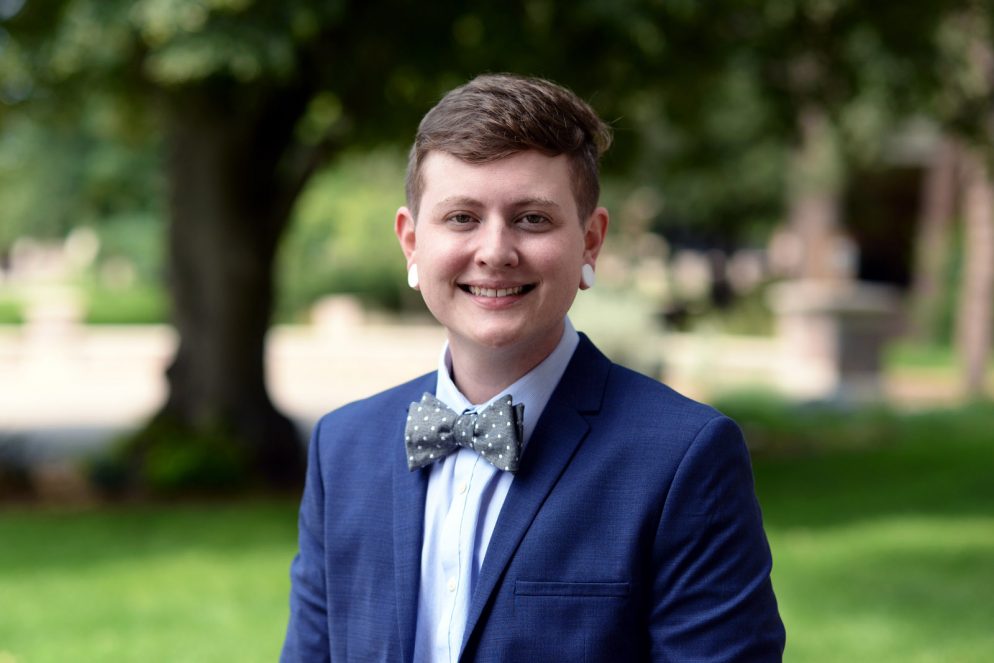Because oppression is divisive, it often leads those with marginalized social identities to believe that they only have other individuals that share their specific social identities to depend on. It can, then, be a challenge for them to engage in building community across intersectional identities. Individualism, a tenet of white supremacy, also feeds into the perception that one can achieve all they need by themselves or with only a small circle of support. The truth is, however, that to move toward liberation, we must come beside each other and work together to form coalitions that recognize and celebrate our differences, as well as our similarities.
For the past two years, the Butler Center has employed a gender and identity development specialist, an individual tasked with providing support for holistic and healthy identity development, particularly around gender and sexual diversity.
This individual works to foster a brave, inclusive space and community that promotes learning, discovery, scholarship about, and support for gender, diverse sexualities, various intersections of identities, and social justice. Unique to many other positions on Colorado College’s campus, the gender and identity development specialist also serves as a confidential resource to the campus community.
While this position has a lens for supporting students belonging to the LGBTQIA+ community, it also works to support all students that are underrepresented in the history of American higher education in their transition to CC and throughout their time as a student here. I am grateful to have served in this role since the beginning of August 2018.
Students often arrive on campus in search of a sense of community and belonging. This can be difficult to achieve, as the transition to college challenges students to juggle coursework, employment, family and social dynamics, as well as many other things. Because of the predominantly white, straight, cisgender campus community, students belonging to marginalized social identities often have an even tougher time navigating these new challenges than their white, straight, cisgender peers, and are in need of additional support.
My position provides students with holistic advising and support, as well as functions as a connection point to a myriad of resources, which can be imperative to students’ sense of belonging, ability to engage in community building, and awareness and utilization of resources. Additionally, in providing intentional and meaningful opportunities for students to engage with their peers, as well as faculty and staff, it is the Butler Center’s hope that they begin to establish their own communities within the larger CC community and find their sense of belonging that they often report as a struggle to find.
I, as well as my colleagues within the Butler Center, work with students to help them understand that their work to end oppression and achieve true liberation is tied up in each other’s; it is not until we recognize and engage with the humanity of one another that we are able to begin to build meaningful coalitions that dismantle and disrupt all forms of oppression.
